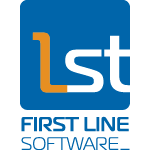
Андрей Садовых
Assistant Professor, Innopolis University
Dr. Andrey Sadovykh holds the M. Sc. degree in Applied Mathematics and Information Technologies of Moscow Institute of Physics and Technology, the Ph. D. degree in Computer Science of Paris 6th University and the MBA degree of HEC Paris Business School. For his Ph. D. he worked in Airbus Safran Launchers as a research engineer in development of systems for distributed monitoring and supervision. He was involved in the European Space Agency (ESA) projects for ATV spacecraft validation facilities and Hardware in the Loop simulation. In SOFTEAM, Dr. Sadovykh coordinates all the research activities of the company covering fields such as model-driven development (MDD) and model-based system engineering (MBSE), Business Process Automation (BPA), Cloud and Big Data in application areas such as eGovernment, eHealth, Space and Agro sectors. He contributed to and oversaw more than 20 collaborative research projects including coordination of 6 of them. Dr. Sadovykh is actively involved in the standardization activities at the Object Management Group. He contributed to standards on SOA and UI modelling — SoaML and IFML respectively. In ModelioSoft, SOFTEAM’s subsidiary, Dr. Sadovykh contributed to the marketing strategy and transformation to open source policies.
In the ECSEL MegaM@RT project, Dr. Sadovykh is a technical coordinator for this large European project for continuous system engineering.
In the ITEA REVAMP project, Dr. Sadovykh coordinates the consortium of 27 partners from all over Europe, who build together the innovation in the Product Lines Engineering field.
Dr. Sadovykh is a faculty member of Innopolis University fully involved in the software engineering research.
Model-Based System Engineering in Practice: Document Generation — MegaM@Rt Project Experience
13 октября, 14:30
Room II|II зал
Обсудить доклад
MegaM@Rt2 project is a collaborative initiative of the ECSEL Joint Undertaking under Horizon 2020 EU programme. The project regroups 26 partners from 6 different European countries who jointly address challenges of engineering modern cyber-physical systems by using model-based engineering methods. Since it is a model-based project, we adopted a similar approach for dealing with requirements analysis, architecture, design, roadmap planning and development status checking. In these tasks, document generation methods were particularly useful to create a set of “live” reference specifications and contractual reports. We believe that these methods perfectly demonstrate relevant benefits of the model-based approach and are applicable to many other contexts. Document generation has several challenges, since the produced documents should address several goals and target different audience. Hence, we describe this approach in detail in this paper in the form of an experience report.
In essence, the MegaM@Rt2 project had a rather trivial task to document inception phase of the project. The challenge arises from the scale of the project, we had to deal with hundreds of requirements from completely different users, hundreds of features of 29 tools, which had to be mapped to those requirements in order to analyze a gap and devise a roadmap for a consistent tool chain. With limited resource on technical coordination we had to be extremely efficient and thus we adopted a model-based approach that we describe in this paper. The paper should be helpful to project managers and architects who wish to discuss on model-based approaches from a practical side.
















